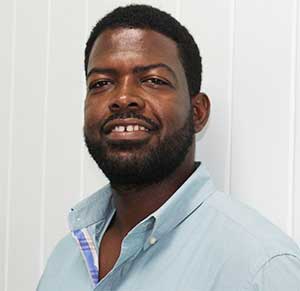AS the country heads into its 38th Independence Day celebrations there are many social issues plaguing it. Surprisingly, one of the biggest of those being absentee fathers and the damaging effects they are having on their children.
Talk to any social service agency, and they will in some degree or another imply that holistic protection of childhood and adolescent has been among their main concerns.
However, it is unclear whether the State has assumed a moral obligation to ensure that every child has an established as filiation, which is the State’s moral obligation.
St. Lucia is a country where empirical data is hardly, if ever amassed in respect of the number of children who are unprotected, primarily due to their parents’ lack of commitment to their upbringing.

What is clear is that attention to, and protection for, children and efforts to satisfy the material and emotional needs for their full development, is a personal responsibility that cannot be delegated to the State.
Among the most dramatic manifestations of this crisis, which usually comes with the absence of one or both parents in the upbringing of children are child labour, sexual exploitation of children and adolescents, deepening social inequality and domestic violence.
One of the main characteristics of the emerging family patterns in St. Lucia is the prevalence of absentee fathers and its devastating effects on the lives of their children.
According to Gender Relation’s specialist Rohn Kurwoski Peter, anecdotal evidence seems to suggest that many fathers in our society need to be supported in the fulfillment of their parental responsibilities. Divorced and unmarried fathers in particular are often seen as being undermined as parents and are at times removed from their children’s lives as daily caregivers.
In addition, fathers face other great challenges of our times, which can include substance abuse, mental health problems, economic stress, unemployment, inadequate housing, crime, and incarceration.
Peter also pointed out that more often than not, fathers have taken up the slack while mothers work longer hours outside the home, and they are no longer content to play a secondary role as parents. He said that fathers today are keen to experience both the joys and challenges of parenthood, derive satisfaction from their parental role, and to be considered active and involved fathers, which is now a core component of their self-identity.
He added that the absence of fathers from the lives of their children, whether willingly or forcefully, is disastrous to the children. Such an absence, Peter noted could cause children’s self-concept to diminishe and compromise physical and emotional security. Such an absence could also cause children to have behavioural problems and difficulties with social adjustment, truancy and poor academic performance will also surface along with delinquency and youth crime – including violent crime, promiscuity, pregnancy, substance abuse, exploitation, abuse, sexual abuse and mental health disorders, particularly anxiety, depression and even suicide.
Peter urged fathers to be there for their children.
“The absence of fathers may well be the most critical social issue of our time and fatherless children the most destructive trend of our generation and this should be treated as a public health issue,” Peter said.
He added that perhaps the greatest concern is the need for a response from policymakers, to intervene with solutions of paramount importance for the best interests of the child and redress father absence into a nation of effective fathers. Also for the names of fathers should be included on their children’s birth certificate. Something that should be done from birth.
“To understand and to be an effective father is paramount. Helping men understand what an invaluable and irreplaceable role they play in the development and lives of their children can lead them to make a greater commitment and investment in their children and themselves,” Peter concluded.






